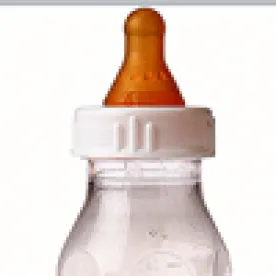On September 7, 2017, the U.S. Court of Appeals for the Eleventh Circuit determined that different treatment based on an employee’s breastfeeding is prohibited by the Pregnancy Discrimination Act (“PDA”). In Hicks v. City of Tuscaloosa, No. 16-13003, the plaintiff worked for a police department, and only eight days after she returned from job-protected pregnancy leave, the plaintiff was reassigned from the narcotics task force to the patrol division. Along with a reduction in pay and different job duties, the plaintiff’s new position as a patrol officer required that she wear a ballistic vest all day, which was not required in her prior position in the narcotics task force.
Before plaintiff began work in the patrol division, her doctor wrote a letter recommending that she be considered for alternative duties because the ballistic vest was restrictive and could cause breast infections that would lead to an inability to breastfeed. The police chief offered the plaintiff a safe beat with access to lactation rooms and priority in receiving breaks. However, the police chief refused to consider the request for alternative duty and informed the plaintiff that she could either wear a specially fitted vest or not wear a vest at all. The plaintiff viewed specially fitted vests as ineffective because of the gaping holes they left, and believed that not wearing a vest was too dangerous. Accordingly, she resigned that day and subsequently filed suit.
Among other issues, the Eleventh Circuit addressed whether the plaintiff was constructively discharged when presented with alternative options for ballistic vests. The court observed that Title VII of the Civil Rights Act, as amended by the PDA, prohibits discrimination “on the basis of pregnancy, childbirth, or related medical conditions.” The court was tasked with determining whether breastfeeding qualified as a “related medical condition[],” and found that it did.
The court explained that the PDA includes a broad catchall phrase, and that it is “a common sense conclusion” that breastfeeding is a gender-specific condition covered by that phrase. Indeed, breastfeeding “clearly imposes upon women a burden that male employees need not – indeed, could not, suffer.” The court also emphasized the U.S. Supreme Court’s prior conclusion that the entire purpose behind the PDA is to guarantee women the basic right to participate fully and equally in the workforce, without being denied the right to full participation in family life. When holding that the PDA covered physiological conditions post-pregnancy, the court observed that the PDA would be rendered a nullity if women were protected during pregnancy, but could be thereafter terminated for breastfeeding attendant to that pregnancy.
The Eleventh Circuit added the caveat, however, that its ruling did not require that employers provide special accommodations to breastfeeding workers. The plaintiff in Hicks had not sought a special accommodation, but rather “alternative duty,” which her employer had previously granted to employees with temporary injuries.
This decision is a critical reminder to employers to act with caution when pregnant or breastfeeding employees request job-related accommodations. Failure to act in conformance with the PDA risks exposure to legal liability, so employers would do well to consult with counsel during the interactive process.




 />i
/>i


